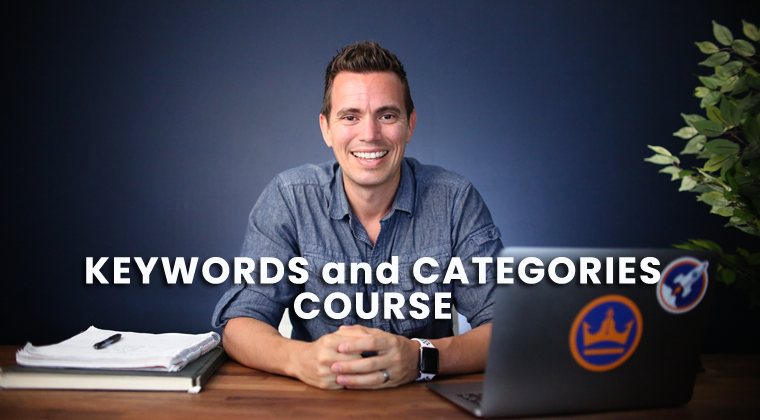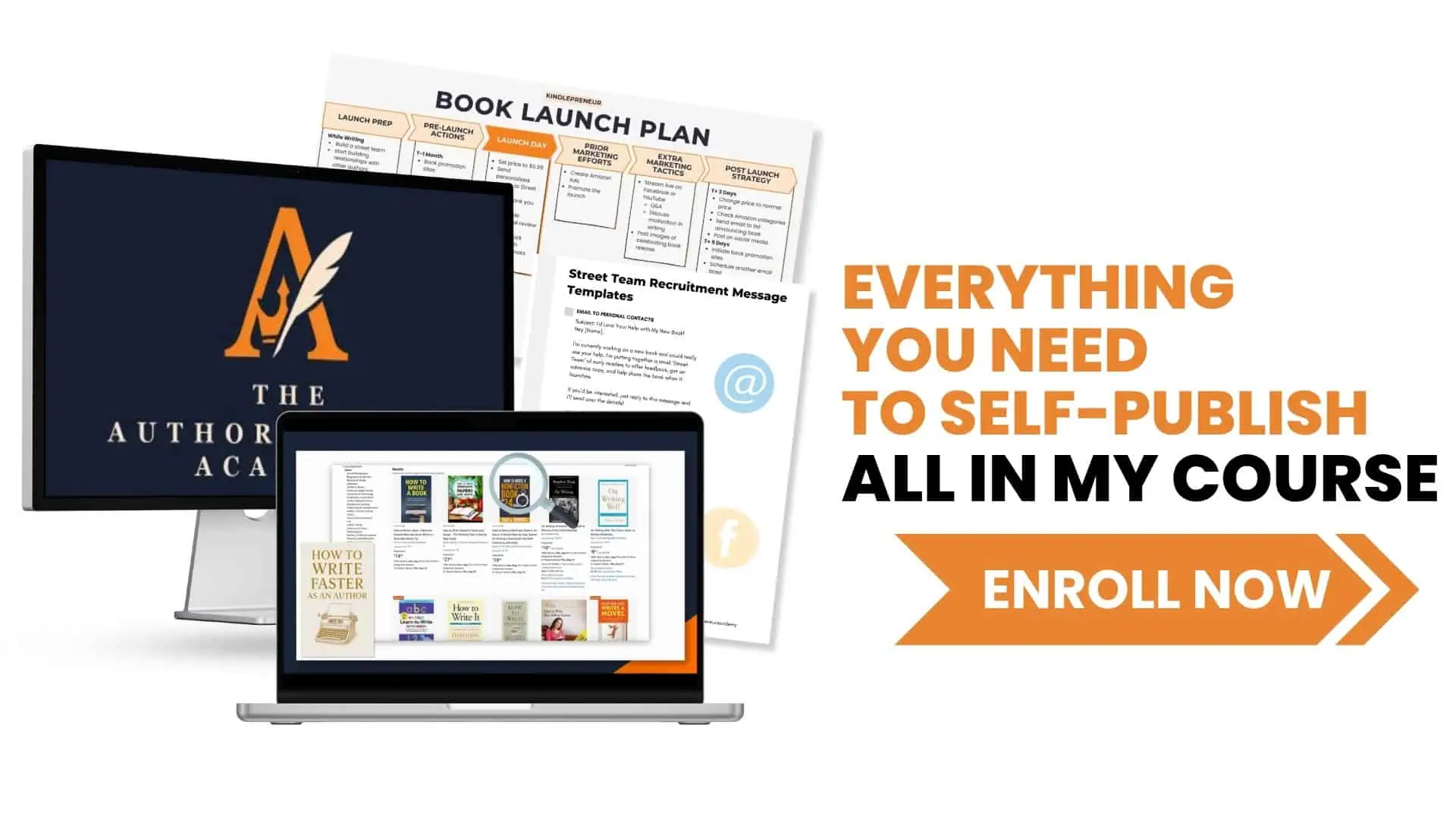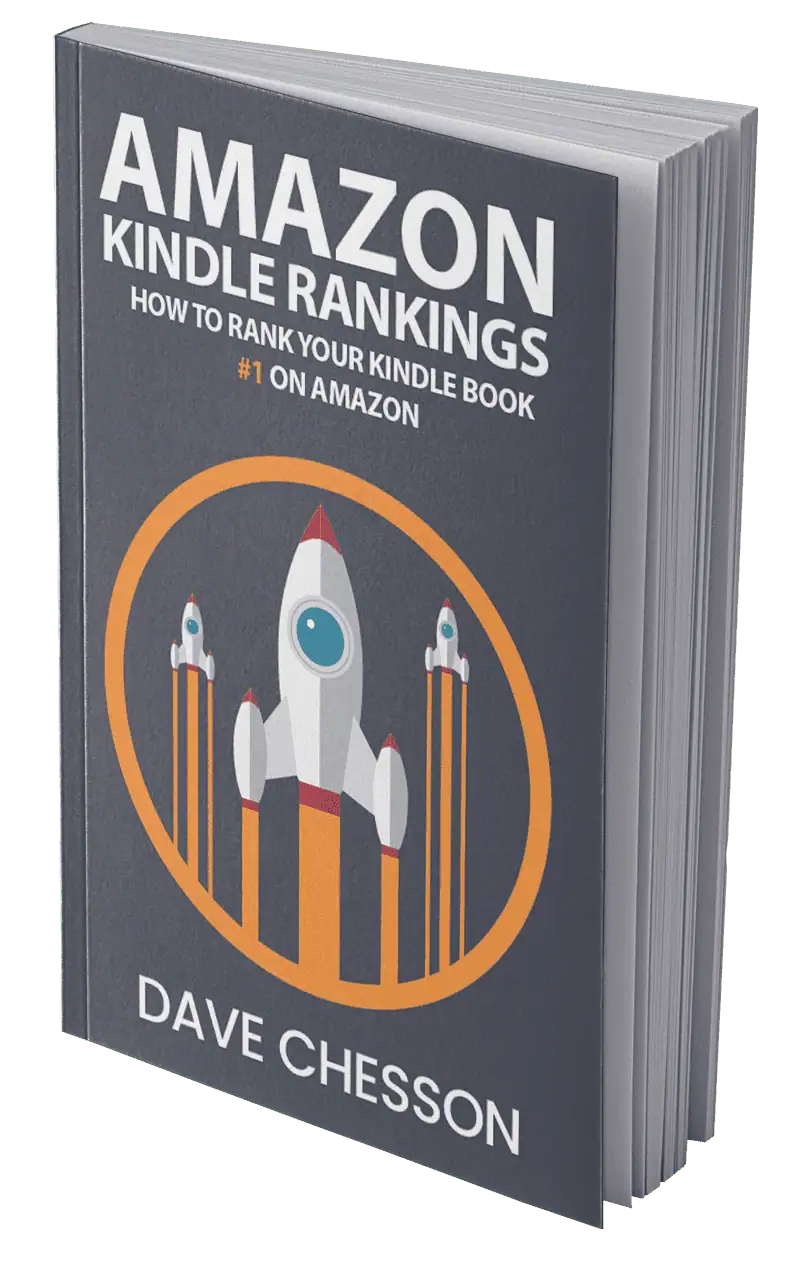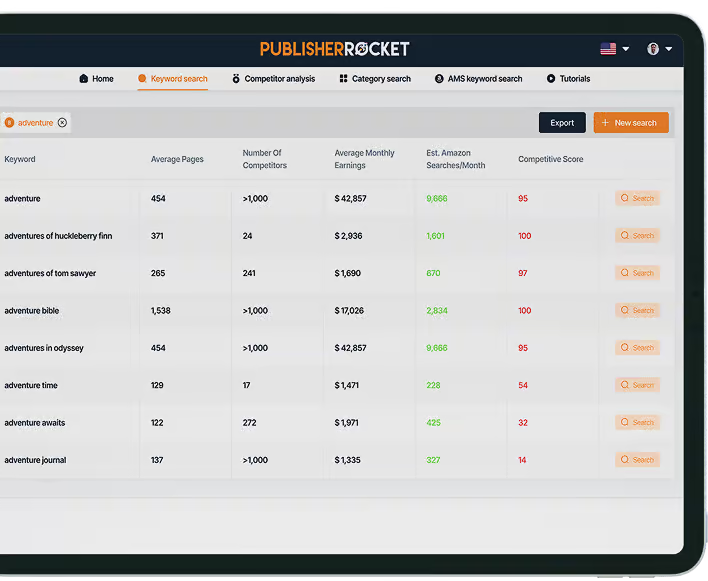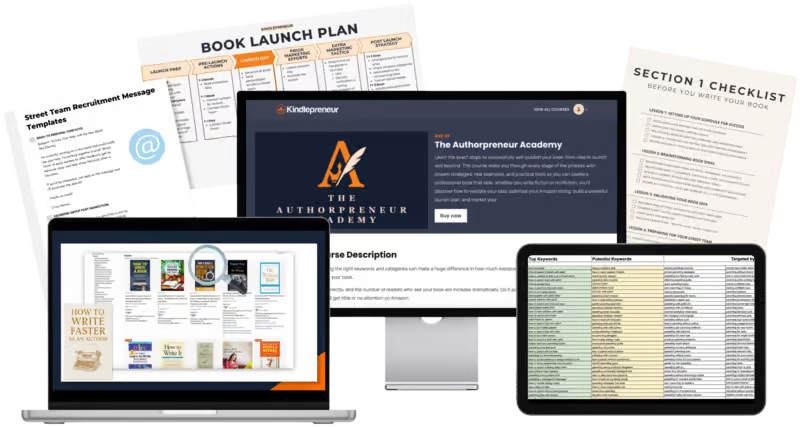When someone talks about “book rankings,” what comes to mind?
Category rankings? Amazon search rankings?
Most authors focus on category rankings… chasing orange bestseller badges and obsessing over where they land on a category page.
But here’s the truth: while category rankings can be nice for visibility and credibility, they’re mostly a by-product of something more important.
If you want more sales, you need to focus on the rankings that actually drive them.
- What affects Category rankings
- What affects Kindle Keyword rankings
- What you should do to improve them
Many authors mix these two up. By the end of this guide, you won’t.
Kindle Category Rankings and Their Worth
We all know about selecting categories for our books. But what actually determines which book ranks higher than another inside a category?
Your book’s category ranking comes directly from its Amazon Best Seller Rank (ABSR) compared to other books in that same category. If your book is in the Sci-Fi Military category and has an ABSR of 24,004, it will rank higher than another book in the same category with an ABSR of 24,005. And if your ABSR is the lowest of every book in that category, congratulations, you’re the #1 bestseller there.
Since category rank is tied to ABSR, improving it comes down to driving more sales. Kindle Unlimited borrows help rankings, but only if the reader actually opens the book. KENP pages read still don’t affect ABSR directly.
Amazon updates ranks continuously throughout the day, though in some cases it can take up to 24 hours for changes to fully reflect.

Now, I get the appeal of having a strong category rank. Landing that orange “#1 Bestseller” badge can give any author a serious writing high. But here’s the thing… category rankings only really matter in two situations:
- If you can hit #1 in a category and get the “Bestseller” mark
- If you can land in the top 20 of a popular category that readers actually browse
If you can’t do either of those, category rankings don’t move the needle. Focus on sales first — the rest takes care of itself.
The Mark of the #1 Bestseller
If you rank #1 in a category, your book is marked as a bestseller. This rocks because in any search results, your book will have something that makes it stick out and even helps to social proof your book.
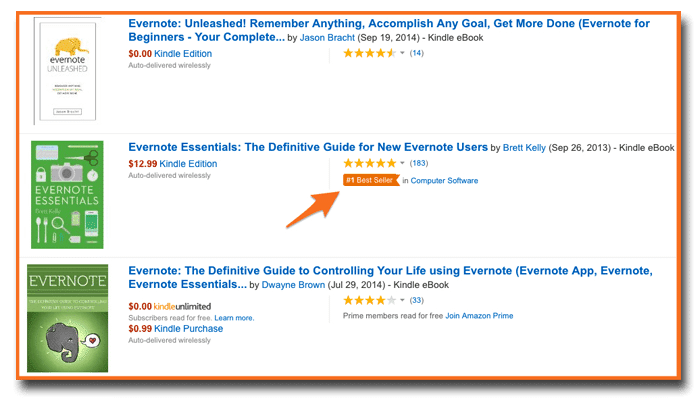
I don’t know about you, but if I am looking at potential books to buy, the one marked bestseller will always catch my eye. The way I see it, it’s a bestseller because other people liked it.
So what does this mean?
A best seller mark increases your conversion rate which thus increases sales.
Ranking in a Popular Category
The other reason why I would care about category ranking is because my book is in the top #20 for a popular category.
The only other way a category can help you get more sales is if that category is one that people typically go to to see what books are doing well and thus look for their next read.
I’m a huge Sci Fi military book fan. So occasionally, I will go to that category page and check to see what books are there. But I only go as far as the first page – which only shows the top 20 for that category.
But this isn’t something I do often or for other categories…just the one – I'm kind of a sci-fi nerd…can you tell?
So, the idea is that if you can rank on the first page for a category that people actively seek out (not some niche obscure one), then your book could get more traffic and subsequently, more sales.
However, remember that “popular” also usually means more competitive. So….yeah.
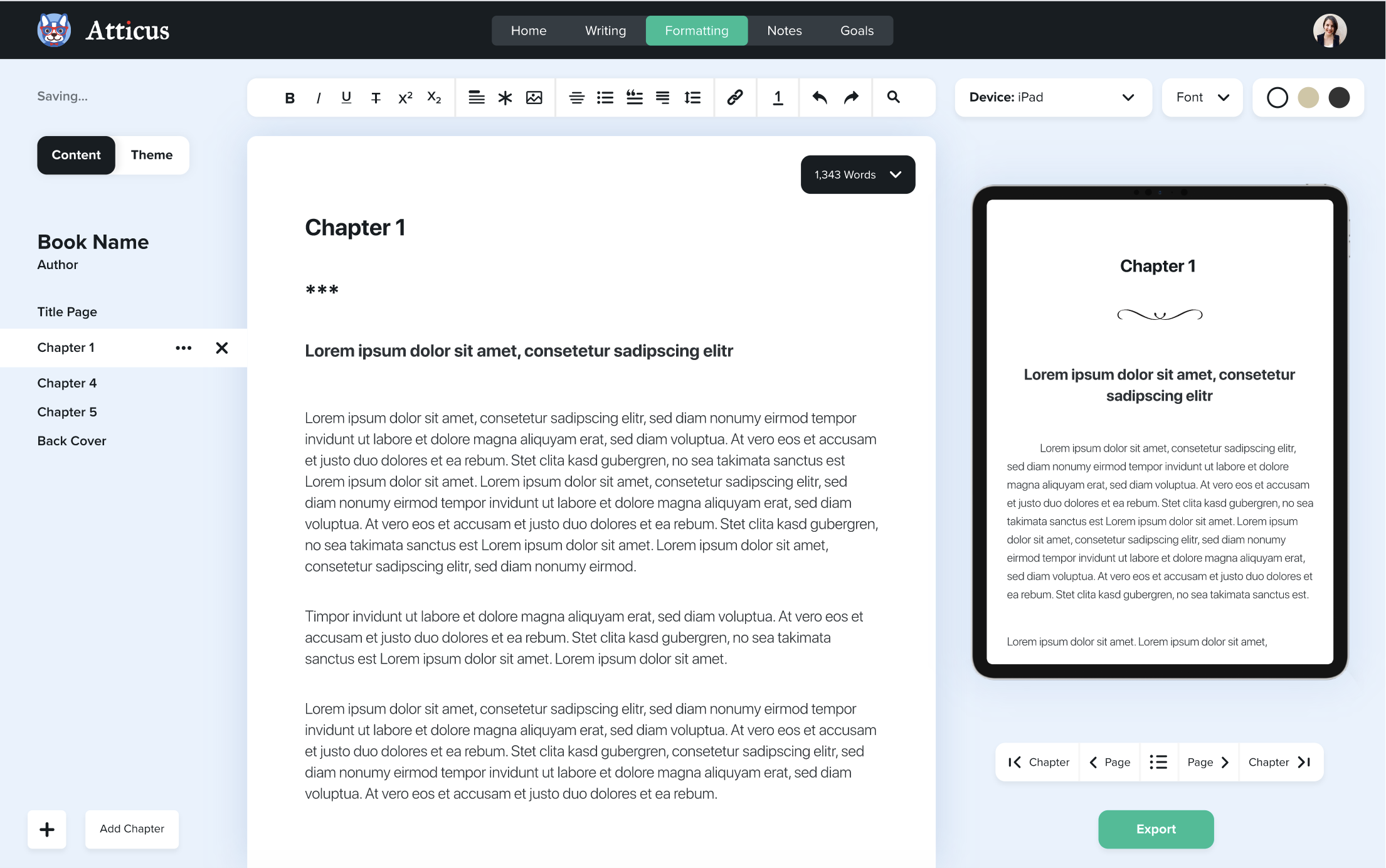
Better Keywords & Categories Fast
See why over 47,000+ authors and publishing companies use and love Rocket to help them sell more books.
Get Publisher Rocket Now!But if you can't do either of these?
Only these two situations with categories help authors sell more books and is therefore, the only time I care about Category rankings…that’s it.
So, if you can't get the “bestseller” mark in some category or rank in the top 20 of a popular category, then don't worry about it. All you need to do is focus on increasing your sales…
Amazon Search Rankings and Why They Matter
If category rankings show how your book stacks up against others in the same category, Amazon search rankings show where your book appears when someone types a keyword into Amazon’s search bar.

And that’s a big deal.
When shoppers search Amazon, the books that show up on the first page get the vast majority of clicks. If your book ranks near the top for a keyword people actually search for, you’ll capture more eyeballs… and more sales.
(Note: Amazon is also experimenting with AI-driven recommendations, but strong search rankings remain one of the most reliable ways to get discovered.)
But here’s the catch:
Ranking for a keyword only helps if you choose the right keywords (terms readers are actually typing into Amazon, and where your book has a real shot at competing). Go after something too obscure and no one will find you. Go after something too competitive and you’ll never rank. You need a sweet spot: high demand, manageable competition.
So how do you figure that out? You could spend hours digging through Amazon manually… or you can use a tool like Publisher Rocket. It gives you real Amazon search data, showing you how many people type in a keyword each month, how competitive it is, and whether it’s worth targeting. (Full disclosure: I built Publisher Rocket for this exact reason.)
If you want your book discovered, start by picking the right keywords. Then optimize your book’s title, subtitle, description, and backend keywords so Amazon knows your book is relevant. Do that well, and combine it with steady sales or borrows, and you’ll climb higher in Amazon’s search results over time.
How to Rank for an Amazon Keyword
Okay, so let’s say you’ve found a great keyword… now what?
Once you’ve identified the right keywords, your job is to signal relevance to Amazon. That means optimizing your book’s details so the algorithm knows your book is a strong match for that search term. After all, Amazon’s current search algorithm doesn’t just look for keywords… it prioritizes books that shoppers actually click on and buy (the more your book converts, the higher you’ll rank).
So, focus on:
- Including the keyword naturally in your title, subtitle, and series name (when appropriate)
- Weaving it into your book description without sounding spammy
- Adding it to your backend keywords in KDP
- Driving steady sales or Kindle Unlimited borrows to build momentum
Here’s why this works: Amazon’s search algorithm looks at both relevance and performance. If people see your book after searching for that keyword, click it, and buy it, Amazon rewards you with higher placement. If they skip your book, you slide down.
Want step-by-step guidance? I have a free course that walks you through choosing the best keywords and categories for your book. You can sign up below.
Get Your Book Discovered
Look over my shoulder as I show you how to select the best keywords and categories so you’ll make more sales.
Category Rankings vs. Search Rankings: Which Matter More?
So which should you focus on… category rankings or Amazon search rankings?
Category rankings only help you sell more books if:
- You can hit #1 in a category and get the orange “Bestseller” badge
- You can land in the top 20 of a popular category that readers actually browse
Search rankings, on the other hand, only drive sales if:
- You target keywords readers are actually typing into Amazon
- The keyword isn’t so competitive that you have no chance of ranking
Here’s where it all connects:
If you rank well for a keyword that readers search for, you’ll naturally make more sales. More sales improve your Amazon Best Seller Rank (ABSR)… and a better ABSR improves your category rankings automatically.
That’s why I focus on search rankings first. Get discovered through the right keywords, and the category badges tend to follow.
More Keywords and Categories:
If you're interested in more articles like this one, check out our hubs for how to choose the best keywords and categories, as well as our overview of Publisher Rocket.

